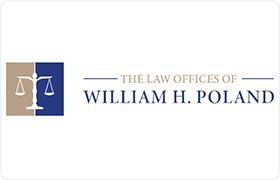Clarksville Criminal Lawyer, Tennessee, page 2
Sponsored Law Firm
-
 x
x

Click For More Info:
-
Law Offices of William H. Poland
408 Franklin St Clarksville, TN 37040» view mapCriminal Defense Law Sound, Professional, & Timely Service
As your attorney, you can be assured that we will use our best reasonable efforts to conclude your matter favorably and to keep you advised of the status of your case.
800-810-3461
Joel Wallace
Criminal, Federal Appellate Practice, Legislative Practice, Credit & Debt
Status: In Good Standing Licensed: 19 Years
Justin Sensing
Criminal, Federal Appellate Practice, Civil Rights, Family Law
Status: In Good Standing Licensed: 14 Years
Debbie Evans
Criminal, Juvenile Law, Products Liability, Family Law
Status: In Good Standing Licensed: 30 Years
Lynn Morton
Divorce & Family Law, Criminal, Wills & Probate, Divorce
Status: In Good Standing Licensed: 32 Years
Gregory Dale Smith
Criminal, Traffic, Divorce & Family Law, Federal Appellate Practice, State Appellate Practice
Status: In Good Standing Licensed: 37 Years
Roland Robert Lenard
Immigration, Divorce & Family Law, Criminal, Personal Injury
Status: In Good Standing Licensed: 42 Years
Roland Robert Lenard
Immigration, Divorce & Family Law, Criminal, Personal Injury
Status: In Good Standing
Stephanie Dawn Ritchie
Child Custody, Criminal, Credit & Debt, Medical Malpractice, Social Security
Status: In Good Standing
 Will Poland Clarksville, TN
Will Poland Clarksville, TN Practice AreasExpertise
Practice AreasExpertise
